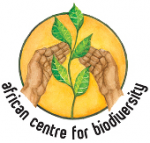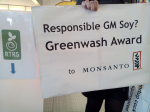Articles
22.05.2015 | permalink
Laws regulating seeds in South Africa to entrench hunger and inequality

Press Release from the Food Sovereignty Campaign
On 15 May South Africa’s Portfolio Committee on Agriculture held public hearings on two Bills that protect and regulate the commercial seed industry; the Plant Breeders Rights (PBR) Bill and the Plant Improvement Bill. The PBR Bill aims to stimulate innovation in plant breeding by awarding extremely strong intellectual property rights to breeders and the Plant Improvement Bill allows only certified seed to be sold on the commercial market. Several NGOs and smallholder farmers made submissions to the committee, saying that the laws will entrench inequality and deepen the hunger crisis in the country because the Bills are oblivious to seed systems that support smallholder farmers and ecological forms of farming. These laws do not recognise or protect farmer-managed seed systems or agricultural biodiversity but undermine the rights of farmers, including their right to re-use, exchange and sell farm-saved seeds.
South Africa is one of the few African countries that is Party to the 1978 International Union for Protection of Plant Varieties (UPOV) - an intergovernmental organization that was established to reward breeders for their new plant varieties by granting intellectual property rights (IPRs) on the basis of a set of clearly defined principles. This has resulted in highly industrialised seed sectors where commercial breeders have strong protection, while farmers are restricted from sharing or selling seed that is protected under this regime. The South African PBR Bill (like its current Act), is based on UPOV 1991 and not UPOV 1978. UPOV 1991 has been slammed world-wide for giving private breeders excessive protection; criticisms include that UPOV 1991 protects private breeders IPRs but does not protect farmers’ varieties from misappropriation; that it promotes genetically uniform seed suited to industrial chemical-dependent agricultural systems that are environmentally harmful, that it does not exempt crops that are important for food security from exclusive property rights and critically, that it outlaws the age-old practice of exchanging seed which has resulted in the agricultural diversity that we know today. Seed exchange also provides safety nets amongst communities for food sovereignty. The second Bill, the Plant Improvement Bill, could also outlaw the sale or exchange of seed that does not meet stringent and higly industralised certification standards set out in the Bill, and these standards apply to commercial seed, not farmers’ varieties or seed appropriate for ecological agriculture. This creates a deeply troubling and inequitable situation where only certified corporate seed is allowed on the market.
21.05.2015 | permalink
In unusual move, German scientists lobby for GM labeling
BERLIN—When it comes to labeling genetically modified (GM) food, the battle lines are usually clear: Those who oppose genetic engineering want it labeled, and those who support it see no need. But today, a group of German scientists and other proponents of GM organisms launched a campaign to require labeling of anything that contains or has been produced with the help of GM organisms.
Their unusual plea is a political gamble; rather than making it more difficult for GM products to reach consumers, they hope the new law will show Germans just how widespread such products already are—whether it’s in food, clothes, drugs, or washing powder—and that there is nothing to be afraid of.
The petition to the German parliament, which will go online tomorrow, asks the German government to prepare a law that requires GM labeling for all food, feed, drugs, textiles, chemicals, and other products that have been produced using genetic engineering. The petition also calls on the government to advocate a similar law at the E.U. level.
20.05.2015 | permalink
March Against Monsanto 2015 is set to launch worldwide on May 23

WORLDWIDE – On May 23, 2015, hundreds of thousands of concerned individuals will gather across 38 countries and 428 cities to join in peaceful protest against the Monsanto Company as a part of the March Against Monsanto grassroots campaign. This movement seeks to raise awareness to the dangers surrounding Monsanto’s genetically modified seeds and cancer-linked herbicide Roundup.
The campaign comes as the demand for GMO labeling and non-GMO food alternatives continues its exponential climb, with states like Vermont enacting mandatory GM labeling legislation that will require food corporations to let consumers know if their products contain GM ingredients.
In polls conducted by the New York Times, Washington Post, Consumer Reports, and many others, over 90% of respondents were in support of national GMO labeling – an initiative that has been defeated time and time again at the state level thanks to heavy spending by Monsanto-backed lobbying groups.
20.05.2015 | permalink
USA: GMO Court Case From The NO-GMO Side
Genetically modified crops--universally called GMO--are not going away, and neither is the controversy over them.
Industry and many regulatory bodies insist they are safe, but many consumers and activists want them tightly controlled, if used at all.
18.05.2015 | permalink
Ecological Farming: The seven principles of a food system that has people at its heart
Greenpeace's Food and Farming Vision
We are living with a broken food system. It needs to be replaced urgently for the benefit of all people, and the planet. Greenpeace's Food and Farming Vision describes what Ecological Farming means, and how it can be summarised in seven overarching, interdependent principles – based on a growing body of scientific evidence.
Ecological Farming combines modern science and innovation with respect for nature and biodiversity. It ensures healthy farming and healthy food. It protects the soil, the water and the climate. It does not contaminate the environment with chemical inputs or use genetically engineered crops. And it places people and farmers – consumers and producers, rather than the corporations who control our food now – at its very heart.
It is a vision of sustainability, equity and food sovereignty in which safe and healthy food is grown to meet fundamental human needs, and where control over food and farming rests with local communities, rather than transnational corporations.
- Greenpeace International: Ecological Farming: The seven principles of a food system that has people at its heart
- Greenpeace International: How our breakfast choice can change the food system
- I Know Who Grew It
- Greenpeace Philippines: Glyphosate's under the spotlight
- Greenpeace International: Pesticides and our Health - A Growing Concern
16.05.2015 | permalink
Doctors demand immediate ban on glyphosate herbicides
Move necessary to protect health of Europeans
The International Society of Doctors for the Environment (ISDE) has written to officials of the EU Parliament and Commission asking for an immediate ban on glyphosate herbicides and four insecticides judged by the World Health Organisation’s cancer agency, IARC, to be probable carcinogens.
The letter states that glyphosate herbicides are associated with health problems such as birth defects, infertility, damage to the nervous system, Parkinson’s disease and several forms of cancer.
The letter adds, “for safeguarding the health of European populations, ISDE states that the rational basis is already strong enough” to justify an immediate and permanent ban.
The ISDE’s Board includes doctors from Europe, North and South America, Pakistan, and Kenya. ISDE has national and regional member organisations in over 25 different countries.
13.05.2015 | permalink
REWE Group removes glyphosate herbicides from its DIY range
The REWE Group’s 350 toom Baumarkt DIY stores will carry no glyphosate products after September 30, 2015
The 350 toom Baumarkt DIY stores belonging to the REWE Group will carry no glyphosate-containing products later than September 30, 2015. From today (11 May) such products cannot be re-ordered for the stores.
By the end of 2013 toom Baumarkt had begun to switch the range and had removed about 60 percent of glyphosate-containing products from sale. Toom Baumarkt offers its customers alternative environmentally acceptable products. Thus toom Baumarkt was well ahead of the upcoming decision on the extension of the EU approval for glyphosate.
"As a responsible company, it is important to regularly review our entire range and seek to protect the environment and nature with alternative and more sustainable options. Toom Baumarkt is constantly and consistently developing a more sustainable portfolio of products,” explains Dominique Rotondi, General Purchasing Manager for toom Baumarkt.
12.05.2015 | permalink
German states call for ban on household pesticide - politicians’ duty to protect people’s health

Germany’s state consumer protection ministers are calling for an EU-wide ban on the leading global pesticide Glyphosate, after it was categorised as carcinogenic by the WHO. However, the federal government sees no need for action. EurActiv Germany reports.
After reevaluating the most widely used pesticide in Germany and worldwide, the World Health Organization’s (WHO) cancer researchers have categorised Glyphosate as “probably carcinogenic to humans”.
In a resolution on Friday (8 May), Germany’s state ministers called for “the supply to and use by private persons to be banned for precautionary reasons”. In addition, the politicians argue that Glyphosate should be prohibited for uses close to consumers.
“This pesticide should not be found in gardens, parks or on children’s playgrounds. I also do not think use in private gardens is appropriate,” explained Lower Saxony’s Consumer Protection Minister Christian Meyer. He is the current chairman of the Consumer Protection Minister Conference.
- EurActiv: German states call for ban on household pesticide
- Federal Institute for Risk Assessment (BfR): BfR-contribution to the EU-approval process of glyphosate is finalised
- The Guardian: Glyphosate is a 'probably carcinogenic' pesticide. Why do cities still use it?
- Telegraph: Katharine Hamnett campaigns for ban on herbicides in parks
08.05.2015 | permalink
Berlin Declaration adopted at GMO-FREE EUROPE 2015

8th May 2015 in Berlin
400 participants from 60 countries today concluded the GMO-FREE EUROPE conference and vowed to continue and intensify their cooperation to keep the European Union free of GMOs, to develop a sustainable protein strategy for Europe and to collaborate with GMO FREE movements around the world.
In a joint declaration participants from the "three pillars" of the GMO FREE EUROPE Conference emphasize the four guiding principles and objectives: · Subsidiarity Principle, · Precautionary Principle, · Polluter-pays-Principle, · Freedom of choice for everybody and point out the following:
http://www.gmo-free-europe.org/press.html
Participants came from the following countries:
Albania, Argentina, Armenia, Australia, Austria, Belgium, Benin, Bosnia and Herzegovina, Brazil, Bulgaria, Canada, Croatia, Czech Republic, Ecuador, France, Gambia, Georgia, Germany, Ghana, Greece, Hungary, India, Ireland, Italy, Japan, Kenya, Kosovo, Latvia, Malawi, Malaysia, Mali, Mexico, Nepal, Netherlands, New Zealand, Nigeria, Northern Ireland, Norway, Poland, Portugal, Republic of Macedonia, Romania, Russia, Serbia, Sierra Leone, Slovenia, South Africa, Spain, Sweden, Switzerland, Tanzania, Togo, Turkey, Uganda, UK, Ukraine, USA, Uzbekistan, Zambia
07.05.2015 | permalink
GMO contamination risk is too high, say groups from Canada, Australia and Japan
Joint media release for Europe
7 May 2015, Berlin
Civil society organisations from Canada, Australia and Japan have jointly issued a warning about contamination risks from genetically modified organisms (GMOs), after the recent EU commission authorisation of 17 new GMOs for food and feed. They are visiting Europe for the GMO-FREE EUROPE Conference 2015 in Berlin 6-8th May.
“Learn the lessons from our countries - GMO is not worth the risk. If allowed, you will have GMO contamination of non-GM crops and nearby land for many years to come” said Jessica Harrison, Coordinator of the GM-Free Australia Alliance (GMFAA). “GM canola was first grown commercially in 2008 in Australia. We find GM canola weeds on roadsides, truck spillages have dispersed GM seeds and GM pollen has contaminated honey. GM-free Tasmania is still eradicating weeds from GM crops´ trials in the late 90’s”. In 2010, Organic farmer Steve Marsh, found GM canola and seeds had contaminated 2/3 of his farm. His ground-breaking court case for damages against his GM crop cultivating neighbour is still not resolved.
It’s been 20 years since Canada started growing GM canola/rapeseed. “Organic grain farmers in Canada have largely stopped growing canola because of GM contamination. For most farmers, it is no longer possible to grow, sell and export organic canola,” said Lucy Sharratt, Coordinator of the Canadian Biotechnology Action Network.
Japanese citizens acted quickly after GM canola weeds were found growing near harbours, cooking oil factories and roadsides throughout Japan. “We do not grow any GM crops in our country,” said Michiyo Koketsu from the NO! GMO Campaign in Japan. “Unfortunately GM canola is imported and crushed here. GM weeds grown from spilt seeds are flourishing and out-crossing with plant relatives such as native rapeseed, mustard and broccoli. An ad hoc response from the Japanese authorities meant that citizens groups, at their own cost, test and remove GM weeds to guard against further contamination.
Due to the body of evidence showing harm, GM food is rejected by consumers, if they know what they are eating. Growing demand for GMO-free food products has meant farmers turning their back on GM crops as they hurry to supply the expanding demand for non-GM crops. In Australia, non-GM canola is sold at an average of $40 per tonne more than GM canola concluded Jessica Harrison.
Notes:
(1) http://www.abc.net.au/news/2013-05-21/euro-canola-demand/4702890
Europe demanding more Australian non-GM canola
(2) http://www.producer.com/2013/05/non-gm-canola-oil-demand-has-crusher-scrambling/
Non-GM canola oil demand has crusher scrambling
Short presentations on the 7th May at Representation of Hesse (In den Ministergärten 5,10117 Berlin)
http://www.gmo-free-europe.org/program-info/7th-of-may-2015/ngos-and-scientists-network-of-gmo-free-regions.html
13:30 - 14:30
- Canada: Impacts and Lessons from 20 Years of GMOs
- GMO-Free in Australia, New Zealand and the Western Pacific
- The Consumer Led Anti-GMO Movement in Japan
Contacts in Berlin:
Lucy Sharratt, Coordinator of the Canadian Biotechnology Action Network
http://www.cban.ca/
coordinator@cban.ca
Jessica Harrison, Coordinator of the GM-Free Australia Alliance (GMFAA)
http://www.gmfreeaustralia.org.au/
gmcropwatch@gmail.com
+37259792097
Michiyo Koketsu, NO! GMO Campaign in Japan
http://www.gmo-iranai.org/
michiyokoketsu@gmail.com
- Zukunftsstiftung Landwirtschaft: GMO-FREE EUROPE 2015
- GMO-FREE EUROPE 2015: GMO-FREE EUROPE Workshops & Presentations
- Canadian Biotechnology Action Network - CBAN
- GM Free Australia Alliance :: To avert the threat of Genetic Manipulation (GM) in food and crops in Australia
- NO! GMO Campaign in Japan
- GMO contamination risk is too high, say groups from Canada, Australia and Japan
